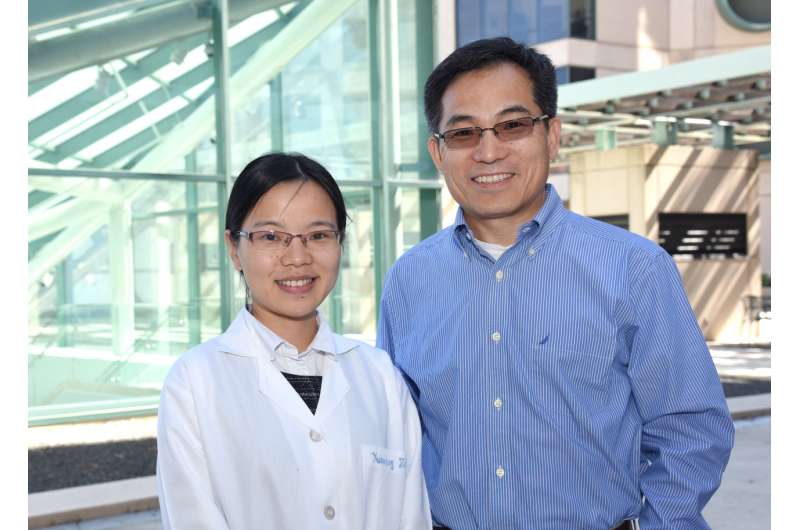Deletion of a stem cell factor promotes TBI recovery in mice

UT Southwestern molecular biologists today report the unexpected finding that selectively deleting a stem cell transcription factor in adult mice promotes recovery after traumatic brain injury (TBI).
The Centers for Disease Control and Prevention defines TBI as a bump, blow, or jolt to the head that disrupts normal brain function, ranging from mild - brief changes in mental status - to severe, marked by an extended period of unconsciousness or memory loss. In humans, most TBIs are mild and are called concussions.
"Our results reveal that SOX2-dependent signaling pathways in reactive astrocytes are targets for brain recovery after traumatic injury," said Dr. Chun-Li Zhang, Associate Professor of Molecular Biology and in the Hamon Center for Regenerative Science and Medicine. Dr. Zhang is co-corresponding author of the study published today in the journal Cerebral Cortex.
Star-shaped astrocytes are the most abundant subgroup of glial cells, which support and insulate neurons in the brain and spinal cord. The stem cell transcription factor SOX2, which is critical for stem cells, cell reprogramming, and brain development, also is activated in astrocytes in the adult brain. Its expression in these cells increases in response to TBI, the researchers said.
Some earlier studies had indicated that reactive astrocytes are necessary for recovery following brain or spinal cord injury despite astrocytes' association with the formation of glial scars.
In this study, the researchers found that conditional deletion of Sox2 - the gene encoding the SOX2 stem cell transcription factor - and the associated dampening of astrocyte reactivity appear to promote functional recovery, including behavioral recovery, after traumatic brain injury, said Dr. Zhang, a W.W. Caruth, Jr. Scholar in Biomedical Research.
"Our finding runs counter to the belief that increasing the reactivity of astrocytes and other glial cells in the brain helps maintain tissue integrity following TBI. That's why the accelerated recovery from injury after deletion of the transcription factor in reactive astrocytes was unexpected," he said.
A better understanding of the molecular mechanisms controlling reactive astrocyte function is fundamental to therapeutic interventions for brain trauma. Because SOX2 functions in several signaling pathways, the study opens up new areas for investigation, Dr. Zhang said.
The mice in the study were engineered so that the Sox2 gene could be conditionally deleted during adulthood. All of the mice produced normal amounts of SOX2 during development, when the transcription factor plays a critical role in the genesis of embryonic and neural stem cells.
The scientists conditionally deleted the Sox2 gene in some adult mice, left the gene intact in others, and then compared the two groups under normal conditions and in response to TBI. Under normal conditions, the researchers detected no differences in astrocyte survival or animal behavior in the presence or absence of the Sox2 gene.
However, in response to TBI, the knockout mice showed greatly reduced astrocyte reactivity compared with controls. Unexpectedly, those mice recovered from injury significantly better than the controls - both physically and behaviorally - the scientists report. The knockout mice also did better on tests of behaviors associated with the brain's prefrontal cortex, the area that regulates complex thinking, emotions, and behavior in humans. Sox2 deletion had no significant effect on learning and memory associated with the brain's hippocampus region, said Dr. Xiaoling Zhong, the co-lead author and a postdoctoral researcher in the laboratory.
"Our results reveal that SOX2 plays an important role in TBI-induced reactive astrocytes and behavioral deficits. We look forward to exploring how SOX2-dependent pathways could be targeted for recovery after TBI," Dr. Zhang said.
















